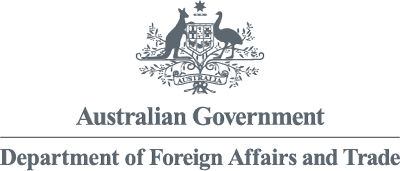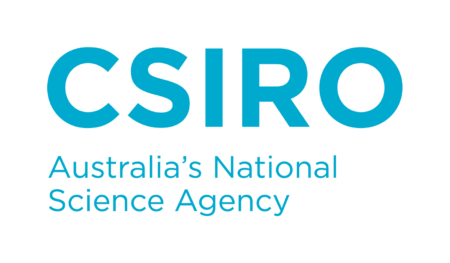Case Study: IPPIN Grants | CARP

How Citarum Action Research Program (CARP) is revitalising one of the worlds most polluted rivers
Over 25 million people depend on the Citarum river for water supply, agriculture, hydropower generation, and livelihoods. Through the CARP initiative, in part funded by IPPIN, 1.6 tonnes of combined plastic and organic waste are removed from the river every week.
| Project Lead | CSIRO | Manufacturing Business Unit |
| Project Partners | Monash University, Universitas Indonesia and Universitas Padjadjaran |
| Grant Support | $300,000 |
| Grant Amount | $300,000 |
| Trial Location | Java |
| Project Duration | 19 months |
The challenge
Millions of people rely on the Citarum River for their water, energy, food and livelihoods. The river sustains livelihoods through agriculture, animal husbandry, fishing and ecotourism. Yet, it is also one of the most polluted rivers in the world. Each day 20,000 tonnes of solid waste, and 280,000 tonnes of industrial wastewater are discharged directly into the river, mostly raw or untreated sewage from domestic households.
Prioritising healthy environments, wellbeing and access to clean water and waste services has never been more important. But solutions are often developed and applied in isolation from each other. An integrative, socio-technical approach for sustainable transformation of the river corridor is needed
The innovation
This project is testing new ways for communities in West Java, Indonesia, particularly those located along the Citarum River, to turn their waste into useful products by establishing local systems to collect, sort, and recycle rubbish. This is critical because millions of people rely on the Citarum River for drinking water, farming, fishing, and their livelihoods, yet it remains one of the most polluted rivers in the world, with unmanaged waste being a major contributor. The goal is to use the insights gained to deliver these solutions to other villages and support Indonesia’s national efforts for more sustainable waste management.
Making an impact with IPPIN Support
This grant helped the team overcome the challenge of researching, evaluating, demonstrating and disseminating practical solutions for managing plastic waste at the community level. It supported training in equipment use and facility operations, improved waste sorting and processing, and enabled the development of procedures for turning soft plastics into new products. The project also provided a platform to share knowledge and outcomes through workshops, training sessions, and a high-profile showcase event with Indonesian and Australian government leaders, helping to build local capacity and inform future policy and investment in circular waste systems.
IPPIN and this grant have significantly expanded the team’s networks by connecting them with a diverse range of collaborators across sectors and countries. Through joint activities such as pilot implementation, training workshops, and the Citarum Living Lab showcase which highlighted contributions from this project, the team have built strong relationships with local community leaders, Indonesian government agencies, Australian Embassy representatives, and international research institutions.
Key learnings
Beyond the grant, IPPIN has helped the team build critical skills and tools to scale and disseminate their work, particularly through strengthened community and government engagement and effective project showcasing.
They’ve gained valuable experience in demonstrating a real-world pilot solution and conducting a draft economic analysis to assess capital and operating costs, along with potential revenue streams. The delivery of the Citarum Living Lab showcase which highlighted this project significantly enhanced visibility with high-level government stakeholders, enabling them to communicate the impact and scalability of their work, and positioning the project’s learnings to inform policy integration.
Ensuring inclusive innovations through a GEDSI approach
Through a dedicated GEDSI Action Plan, co-design workshops and accessible training sessions, this project ensures inclusive participation, equitable access to opportunities, and the empowerment of women, youth, disabled people, and LGBTQI+ individuals.
Where needed, the team held separate meetings for diverse groups, including women, disabled people, youth, and LGBTQI+ individuals to support meaningful engagement. These sessions were designed to ensure women were included among the training staff and to encourage their continued involvement and employment in the process.
For example, transport funds were given to ensure the equal participation of underrepresented groups in focus group discussions and workshops, helping to reduce barriers to involvement. GEDSI progress is being monitored through disaggregated data collection and evaluation metrics that capture participation, outcomes, and perceptions across diverse groups.
The team monitor and evaluate how and why waste management interventions are taken up by women, disabled people, youth, and LGBTQI+ individuals, identifying potential intersectional barriers and enablers to ensure continuous learning and improvement and ongoing inclusive practices.
Next steps and opportunities
This project has contributed to early-stage policy influence and support for regulatory shifts by generating evidence and guidance tailored for decision-makers, evidenced by two key reports: the Waste-to-Resource Model Design Report and the Waste-to-Resource Pilot Evaluation Report.
These reports support village governments who are starting to implement structured waste management. In parallel, the team have commissioned an economic report and presented their project findings as part of the “Towards Evidence-Informed Policy and Practice in River Revitalisation: A Citarum Living Lab Showcase” in November 2024. These initiatives provided actionable insights, highlighted scalable models, and will inform future local waste policy and practice.
Using the learnings from this project, the team will work to deliver these solutions to other villages and support Indonesia’s national efforts for more sustainable waste management.
Further information
For partnership or investment enquiries, contact the IPPIN team:


